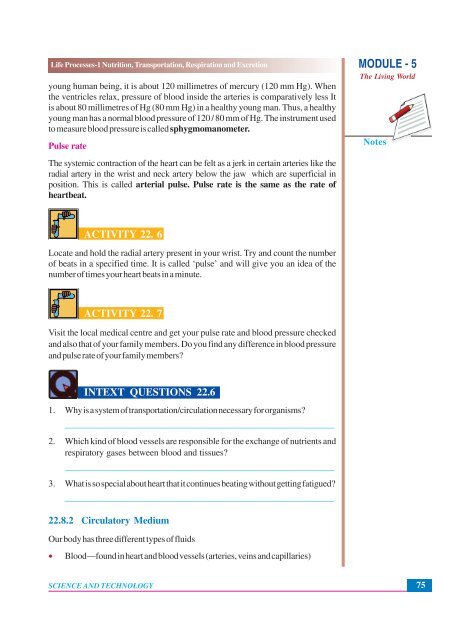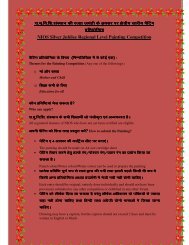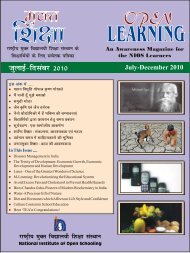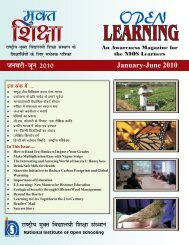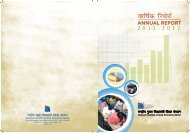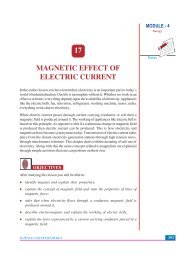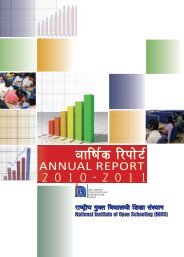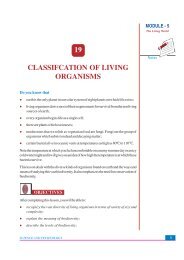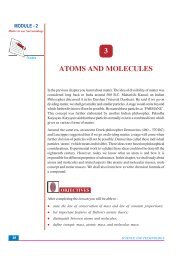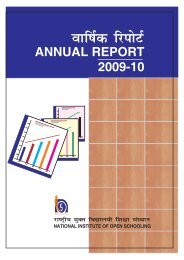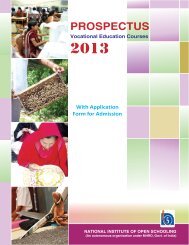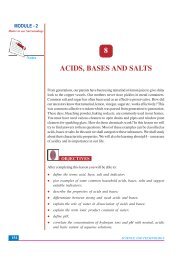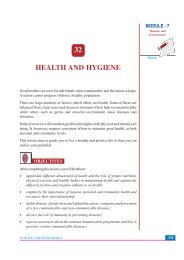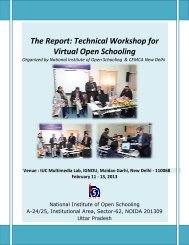Nutrition, Transportation, Respiration and Excretion
Nutrition, Transportation, Respiration and Excretion
Nutrition, Transportation, Respiration and Excretion
Create successful ePaper yourself
Turn your PDF publications into a flip-book with our unique Google optimized e-Paper software.
Life Processes-1 <strong>Nutrition</strong>, <strong>Transportation</strong>, <strong>Respiration</strong> <strong>and</strong> <strong>Excretion</strong><br />
young human being, it is about 120 millimetres of mercury (120 mm Hg). When<br />
the ventricles relax, pressure of blood inside the arteries is comparatively less It<br />
is about 80 millimetres of Hg (80 mm Hg) in a healthy young man. Thus, a healthy<br />
young man has a normal blood pressure of 120 / 80 mm of Hg. The instrument used<br />
to measure blood pressure is called sphygmomanometer.<br />
Pulse rate<br />
MODULE - 5<br />
The Living World<br />
Notes<br />
The systemic contraction of the heart can be felt as a jerk in certain arteries like the<br />
radial artery in the wrist <strong>and</strong> neck artery below the jaw which are superficial in<br />
position. This is called arterial pulse. Pulse rate is the same as the rate of<br />
heartbeat.<br />
ACTIVITY 22. 6<br />
Locate <strong>and</strong> hold the radial artery present in your wrist. Try <strong>and</strong> count the number<br />
of beats in a specified time. It is called ‘pulse’ <strong>and</strong> will give you an idea of the<br />
number of times your heart beats in a minute.<br />
ACTIVITY 22. 7<br />
Visit the local medical centre <strong>and</strong> get your pulse rate <strong>and</strong> blood pressure checked<br />
<strong>and</strong> also that of your family members. Do you find any difference in blood pressure<br />
<strong>and</strong> pulse rate of your family members?<br />
INTEXT QUESTIONS 22.6<br />
1. Why is a system of transportation/circulation necessary for organisms?<br />
___________________________________________________________<br />
2. Which kind of blood vessels are responsible for the exchange of nutrients <strong>and</strong><br />
respiratory gases between blood <strong>and</strong> tissues?<br />
___________________________________________________________<br />
3. What is so special about heart that it continues beating without getting fatigued?<br />
___________________________________________________________<br />
22.8.2 Circulatory Medium<br />
Our body has three different types of fluids<br />
• Blood—found in heart <strong>and</strong> blood vessels (arteries, veins <strong>and</strong> capillaries)<br />
SCIENCE AND TECHNOLOGY<br />
75


